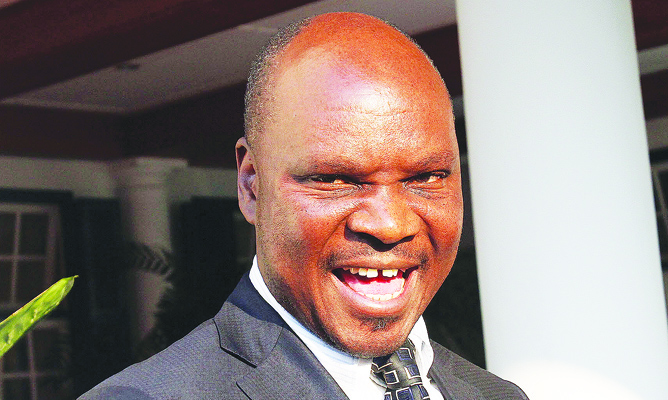
THE Ministry of Mines and Mining Development was looking at the indigenisation proposals and plans of various companies before making submissions to Cabinet.
BY VICTORIA MTOMBA
In an interview, Mines and Mining Development minister Walter Chidakwa said the ministry was not looking at compliance only, but also the agreed compliance plans.
“For us it is not a matter of who complied and we are looking at each and every company and we say what was your original indigenisation proposal and we look at it to see if the company is complying. We are also putting aside plans for the companies that are complying over five years and when we are done we will then go to Cabinet,” he said.
Line ministries have been mandated to ensure that companies under their purview complied with the law which stipulates that at least 51% of all companies with a net asset value of $500 000 and above should be in the hands of locals.
The law gives the ministers the powers to use their discretion in ensuring that companies comply with the law.
A number of companies in the mining sector submitted indigenisation plans to government towards compliance and have also set up community share ownership trusts.
- Chamisa under fire over US$120K donation
- Mavhunga puts DeMbare into Chibuku quarterfinals
- Pension funds bet on Cabora Bassa oilfields
- Councils defy govt fire tender directive
Keep Reading
Foreign companies were given a deadline for the beginning of this month to comply with the indigenisation plan, failure of which would result in their closure.
Youth Development, Indigenisation and Economic Empowerment minister Patrick Zhuwao said Cabinet had last year approved the move for company closures over non-compliance.
President Robert Mugabe had to step in after Zhuwao had clashed with Finance minister Patrick Chinamasa over the implementation of the policy in the banking and financial services sector.
International Monetary Fund resident representative Christian Beddies said the country was following emerging trends of promoting local empowerment through programmes of affirmative action. He said several countries such as Algeria, Botswana, South Africa and South Korea have implemented such programmes.
“We emphasise that it’s consistent, transparent, and pro-business implementation will be key to improving the business climate. In the case of Zimbabwe, the key challenge centers around balancing the desire for economic empowerment with the desire to foster economic growth through domestic and foreign investment,” Beddies said.
“An enhanced and inclusive dialogue between the private sector and government could go a long way in instilling a more conducive investment climate.”












